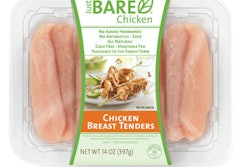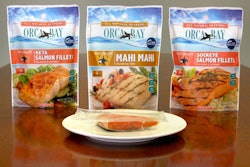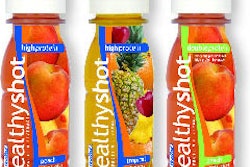What it is is the latest excellent reminder of the importance of care and attention to the details of what goes on a package label, because labels can lead not only to damaging accusations of regulatory violations, but also to expensive class action civil cases by private plaintiffs.
What it isn’t, though, is from Mars: That is, the concept of health-related claims on food labels is hardly new, though some observers seem to think so. On this issue, I offer a comment about Cheerios. FDA recently sent General Mills a nasty Warning Letter complaining about some of the company’s disease prevention claims on Cheerios boxes. The alleged problem was not, as widely reported, the very idea of claiming that foods like Cheerios could help prevent heart disease, for example. Claims like that, called “health claims,” are permitted by FDA on labels of foods that qualify to make them, provided the claims meet certain parameters. The problem was some of the very specific things General Mills claimed about Cheerios’ effects on disease went outside the bounds of the permissible claims.
Oddly, at least one written news story and one TV talk show that I happened upon seemed oblivious to these facts, complaining instead that General Mills had somehow gone legally kaflooey by daring to mention heart disease on its labels. Wrong. It was simply how they did it that made FDA complain.
In addition to health claims on food labels about prevention of disease, claims are also permitted for a food’s effect on the structure or function of the body.
Structure/function claims can’t tout a benefit for prevention or mitigation of disease. They can claim that the food can help control weight, help you relax, help support joint function, and help promote digestion, to name just a few examples. Dietary supplement products often tout such effects on structure or function of the body, as they are permitted by law to do as well. And, as with every claim on a food label, a structure/function claim has to be truthful and not be misleading.
So, now that we know health-related claims are sometimes permitted on food labels, let’s look back at the labels for Dannon’s Activia and DanActive products.
In early 2008, along come some private plaintiffs, not government agencies, complaining that there were aspects of the Dannon labels that were false or misleading. They filed the case as a “class action” in early 2008.
“Class actions” are a type of civil lawsuit in which a single case is conducted for the benefit of many plaintiffs, a “class,” that might contain tens or hundreds of thousands of individuals who have suffered sometimes quite small levels of damages. These cases typically accuse a company of violating a State consumer protection statute or committing fraud in the marketing of a consumer product, and the remedy the plaintiffs seek is often some small amount of dollar recovery for each affected consumer. Because there are so many plaintiffs, the total recovery, whether via settlement between the parties or a court verdict after trial, is often multiple millions of dollars. The court typically has to approve any settlement. The plaintiffs’ lawyers make large sums in fees, as well, and the court has to approve that part, too.
In September, The Dannon Company and the plaintiffs announced they had settled the case. Dannon said it admitted no wrongdoing but agreed to settle the case and make some changes to labeling and marketing of both its Activia and DanActive products that will “increase the visibility of the scientific names of the unique strains of probiotics” in each product. The company emphasized that its products’ health benefits are backed up by scientific substantiation that is and has always been available to consumers, saying they decided to settle the case to avoid the “distraction and expense of litigation” and get back to focusing on making healthful products for consumers.
As part of the settlement, Dannon agreed to, for example, make a subtle change in a statement on the DanActive label from “a positive effect on your digestive tract’s immune system” to “ interact with your digestive tract’s immune system.” It will also change the Activia label to make more prominent a statement about the product being part of an overall diet and healthy lifestyle. They set up a $35 million fund to give consumers refunds. Those who bought the products in the past can get refunds for up to $100.
It’s not uncommon that a class action seeks recoveries for allegedly aggrieved consumers over the same issues that are also subjecting the company to regulatory troubles from a government agency. And in fact, Dannon says it is working with the Federal Trade Commission to address that agency’s interest in claims like those targeted in the class action.
In many cases, the moment a company is accused of making misleading claims, they have already lost, regardless of whether the claims were well founded or not. That’s just a reality of the modern marketplace, in which companies have to contend with regulatory requirements, potential class action lawsuits, and, of course, public perception of the company and its products. All of which leads to the reasonable conclusion that it pays to devote lots of care and attention to label claims.























